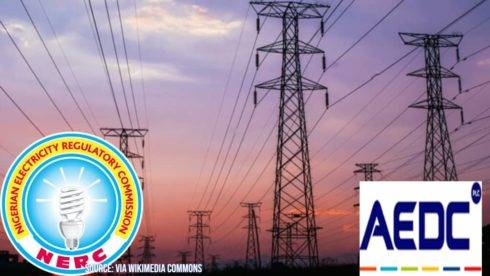In a move that has sent shockwaves through the power sector, Joe Agi, a senior advocate of Nigeria, has initiated legal proceedings against the National Electricity Regulatory Commission (NERC) and the Abuja Electricity Distribution Company (AEDC). The lawsuit, filed at the Federal High Court in Abuja, alleges a staggering 230 percent increase in electricity tariffs without proper justification, violating consumer rights and regulatory frameworks.
Joe Agi, represented by the suit number FHC/ABJ/CS/474/2024, is seeking the protection of his fundamental rights, which he claims have been infringed upon by the recent tariff hike. The legal action comes as a response to the growing public outrage over exorbitant electricity bills, which have placed an unprecedented financial burden on households and businesses alike.
NERC and AEDC Face Allegations of Unconstitutional Practices by Joe Agi (SAN)
In the legal case presided over by Justice Inyang Ekwo, Joe Agi has requested the court to declare the recently implemented tariffs and supply durations as being in direct conflict with the provisions of the Electricity Act of 2023 and Section 42 of the 1999 Constitution. The lawsuit alleges that the tariff increase violates the principles of fair and equitable treatment enshrined in the country‘s legal framework.
The applicant has named NERC, the Minister of Power, the Attorney-General of the Federation (AGF), and AEDC as the first to fourth respondents in the case, respectively. This strategic move aims to hold the relevant authorities accountable for their actions and seek redress for the perceived injustice inflicted upon electricity consumers.
Joe Agi (SAN) Consumers Demand Transparency and Accountability
The legal battle has ignited a broader discussion on the transparency and accountability of the power sector in Nigeria. Consumer advocacy groups have rallied behind Joe Agi’s initiative, asserting that the arbitrary tariff hikes are symptomatic of a system that prioritizes profit over consumer welfare.
Critics argue that the electricity distribution companies have failed to provide reliable and efficient services, yet they continue to impose exorbitant tariffs on consumers without addressing the underlying issues of infrastructure deficiencies and inefficient power generation and distribution.
Regulatory Overhaul and Consumer Protection Measures Sought by Joe Agi
As the legal battle over electricity tariffs escalates, stakeholders across Nigeria’s power sector are amplifying calls for a sweeping overhaul of the regulatory framework governing this critical industry. The clarion call echoes the pressing need for robust consumer protection measures that enshrine fair pricing mechanisms, transparent billing practices, and efficient service delivery standards. This crucial juncture presents a window of opportunity to realign the sector’s priorities with the interests of the Nigerian populace, catalyzing a paradigm shift towards a more equitable and sustainable energy landscape.
The high-stakes legal proceedings have ignited a discourse that transcends the immediate issues at hand, casting a spotlight on the broader systemic challenges plaguing the power sector. As the nation holds its collective breath, the outcome of this landmark case is poised to set a precedent that could reverberate through future tariff adjustments and potentially ignite sweeping reforms. Stakeholders are united in their conviction that this watershed moment must pave the way for the restoration of consumer confidence, a cornerstone of a thriving energy ecosystem that ensures universal access to affordable and reliable power for all Nigerians.
The Abuja Federal High Court Electricity Sector Ruling
The Federal High Court in Abuja is set to deliver a landmark judgment that could reshape Nigeria’s electricity sector. Justice Inyang Ekwo’s forthcoming ruling carries immense weight, as it will address critical issues concerning consumer rights, regulatory oversight, and the operational dynamics of power distribution companies. Stakeholders across the nation are closely monitoring this high-profile case, eagerly anticipating a decision that upholds transparency, affordability, and reliable electricity supply for millions of Nigerian households and businesses.
The court’s ruling has the potential to catalyze sweeping reforms within the Nigerian electricity market. Consumer advocacy groups are hopeful that Justice Ekwo’s decision will prioritize consumer protection measures, ensuring fair billing practices and efficient complaint redressal mechanisms. Simultaneously, industry stakeholders are seeking clarity on regulatory frameworks, tariff structures, and operational guidelines that foster a sustainable and investor-friendly environment. As the nation awaits this pivotal judgment, all eyes are on the Federal High Court in Abuja to strike a judicious balance between consumer interests and the long-term viability of Nigeria’s power sector.
Calls for Urgent Reforms and Stakeholder Collaboration
In the wake of this legal confrontation, experts and industry analysts are urging all parties involved to engage in constructive dialogue and collaborate to find sustainable solutions. They emphasize the need for a holistic approach that addresses the systemic challenges plaguing the power sector, including inadequate infrastructure, inefficient generation and distribution mechanisms, and the lack of investment in renewable energy sources.
By fostering stakeholder collaboration and implementing urgent reforms, Nigeria can pave the way for a more resilient and equitable power sector, one that strikes a balance between consumer rights and the operational viability of electricity providers. Only through concerted efforts and a commitment to transparency can the nation overcome the longstanding obstacles and ensure reliable and affordable energy access for all its citizens.
Table of Contents
Discover more from OGM News NG
Subscribe to get the latest posts sent to your email.














